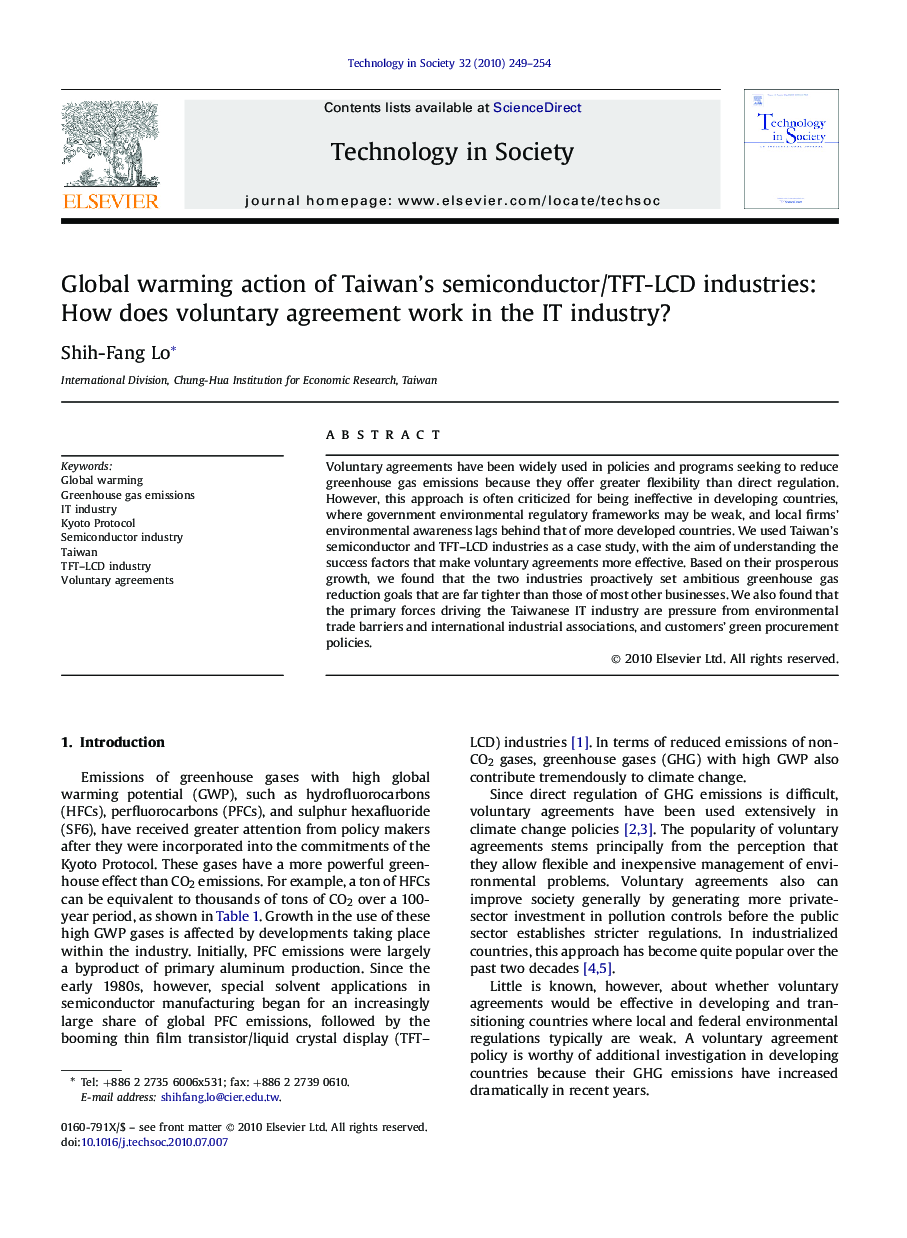| Article ID | Journal | Published Year | Pages | File Type |
|---|---|---|---|---|
| 375255 | Technology in Society | 2010 | 6 Pages |
Voluntary agreements have been widely used in policies and programs seeking to reduce greenhouse gas emissions because they offer greater flexibility than direct regulation. However, this approach is often criticized for being ineffective in developing countries, where government environmental regulatory frameworks may be weak, and local firms’ environmental awareness lags behind that of more developed countries. We used Taiwan’s semiconductor and TFT–LCD industries as a case study, with the aim of understanding the success factors that make voluntary agreements more effective. Based on their prosperous growth, we found that the two industries proactively set ambitious greenhouse gas reduction goals that are far tighter than those of most other businesses. We also found that the primary forces driving the Taiwanese IT industry are pressure from environmental trade barriers and international industrial associations, and customers’ green procurement policies.
